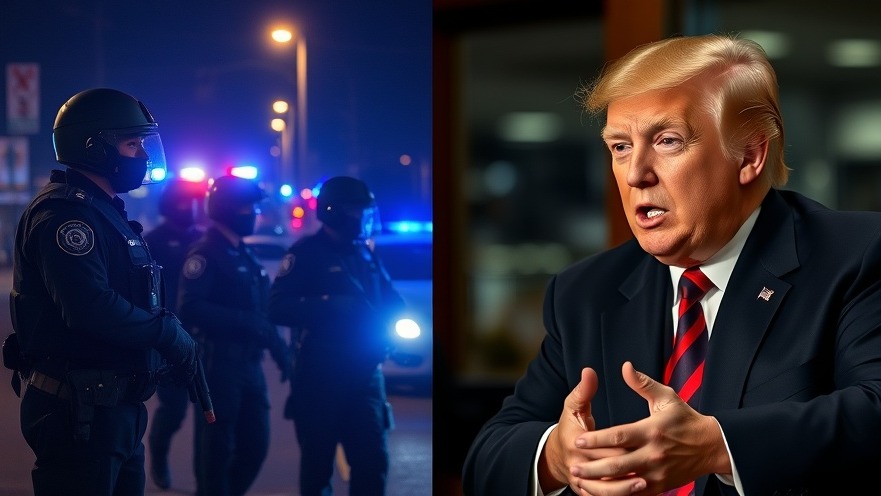
Understanding Trump's Hardline Immigration Stance
In a recent address, former President Donald Trump emphasized his administration's strict approach to immigration, claiming it reflects a necessary response to crime rates in the United States. He interpreted a new executive order from the Washington, D.C. police chief allowing local law enforcement to report undocumented immigrants to federal authorities as a victory for law and order. This policy marks a significant shift from D.C.'s historically progressive immigration policies, sparking renewed debate across the nation.
In 'That's Going To Happen All Over The Country': Trump Touts Hardline Immigration Policy, the discussion dives into the complexities of immigration enforcement, exploring key insights that sparked deeper analysis on our end.
The Implications of Local Policies on National Immigration Reform
Trump’s comments signal a growing trend towards revisiting local immigration policies, especially those in sanctuary cities. These cities, which prioritize local police policies that limit cooperation with federal immigration agencies, are seen by some as counterproductive to national security efforts. Trump's claim that similar policies might soon be rolled out across the nation raises concerns for residents who advocate for more inclusive immigration policies. The crux of the discussion revolves around balancing community safety with the rights of undocumented immigrants.
What Does This Mean for Immigrant Communities?
The potential for a national enforcement strategy raises fear within immigrant communities, particularly those who contribute positively to society but face the threat of deportation. Many advocates argue that such policies not only criminalize immigrants but also threaten public safety by dissuading immigrants from reporting crimes or cooperating with law enforcement for fear of being detained or deported. The sentiment that crimes should be reported and addressed should extend to all community members, regardless of their immigration status.
Public Sentiment on Immigration Policies
Polling data shows a divided America on immigration reform. While some support strict enforcement measures, many Americans also favor pathways to citizenship for undocumented immigrants who are contributing members of society. The debate highlights a critical tension in American values: upholding the rule of law while recognizing the human rights and dignity of all individuals. Trump's framing of immigration during his presidency ignites fierce discussions about overreach, human rights, and the American dream itself.
A Look at Future Trends
As the nation gears up for future elections, immigration policy will undoubtedly be a topic of contention. The rising polarization around this issue suggests that candidates will need to craft narratives that appeal to a wide swath of voters. Observers of Capitol Hill anticipate an ebb and flow of proposals, legislative debates, and public demonstrations as political parties navigate the complexities of an issue that hits close to home for many Americans.
Actionable Insights: What Can You Do?
For readers interested in influencing immigration policy, engagement at the local level is key. Whether it's contacting elected officials, attending town hall meetings, or leveraging social media to share personal stories, individuals can contribute to a broader dialogue about immigration. Advocacy groups encourage citizens to educate themselves on the implications of current policies and to participate in the political process, ensuring that diverse voices are represented.
In "That's Going To Happen All Over The Country": Trump Touts Hardline Immigration Policy, we delve into critical immigration issues that reveal Trump's vision for America's future. These discussions evoke serious reflections on the balance between law enforcement and humanitarian needs, raising questions about the path forward for U.S. immigration policy.
 Add Element
Add Element  Add Row
Add Row 



Write A Comment